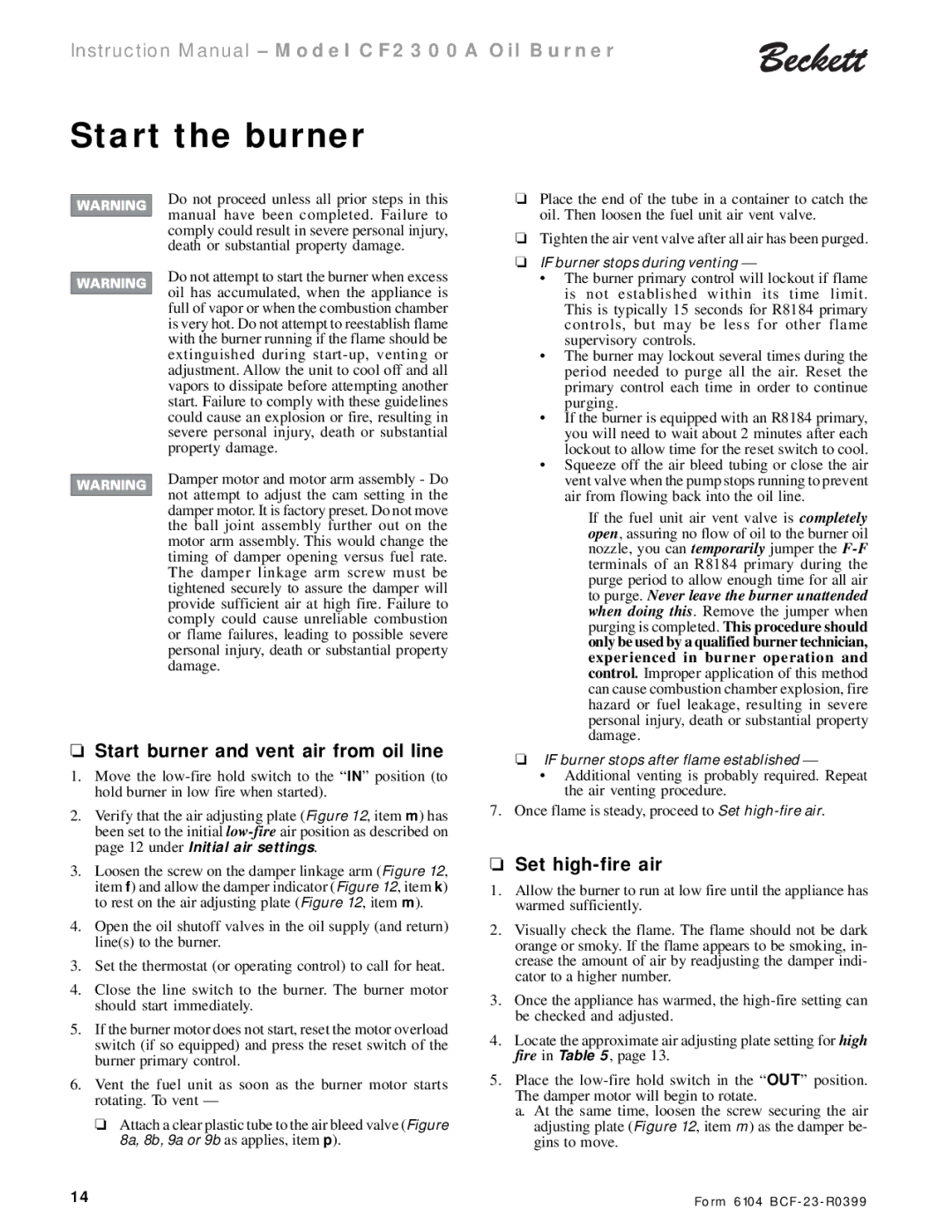CF 2300A specifications
The Beckett CF 2300A is a highly regarded oil burner designed for residential and light commercial use. Known for its reliability and efficient performance, the CF 2300A is a favored choice among HVAC professionals and homeowners alike. This model optimizes fuel efficiency while ensuring a consistent and dependable heat output, making it suitable for various heating applications.One of the standout features of the Beckett CF 2300A is its advanced combustion technology. Equipped with a unique air-to-fuel ratio control system, this burner optimizes the mix of air and fuel, resulting in cleaner combustion and increased energy savings. This technology not only enhances heating efficiency but also reduces the environmental impact by minimizing harmful emissions.
The CF 2300A is designed with a sleek, compact profile that allows for easy installation in tight spaces. Its versatile mounting options and adjustable dimensions accommodate various installation configurations, making it a flexible choice for both new and retrofitting projects. Additionally, the burner is compatible with a wide range of fuel types, including traditional heating oil, which enhances its usability across different heating systems.
Built for durability, the Beckett CF 2300A features robust components that withstand the rigors of daily operation. Its heavy-duty construction ensures longevity, reducing the need for frequent replacements or repairs. Furthermore, it includes a reliable ignition system that provides quick starts and consistent operation, making it a dependable choice for homeowners.
Another key characteristic of the CF 2300A is its low noise operation. The design incorporates noise-reducing technologies that minimize the sound output during operation, contributing to a comfortable indoor environment. This feature is particularly beneficial in residential settings where quiet heating solutions are desired.
In conclusion, the Beckett CF 2300A oil burner combines innovative technologies with reliable performance characteristics. Its advanced combustion system, flexible installation options, robust construction, and quiet operation make it an optimal choice for residential and light commercial heating needs. With a focus on efficiency and longevity, the CF 2300A continues to set a standard in the industry, providing dependable heat while prioritizing environmental sustainability.

